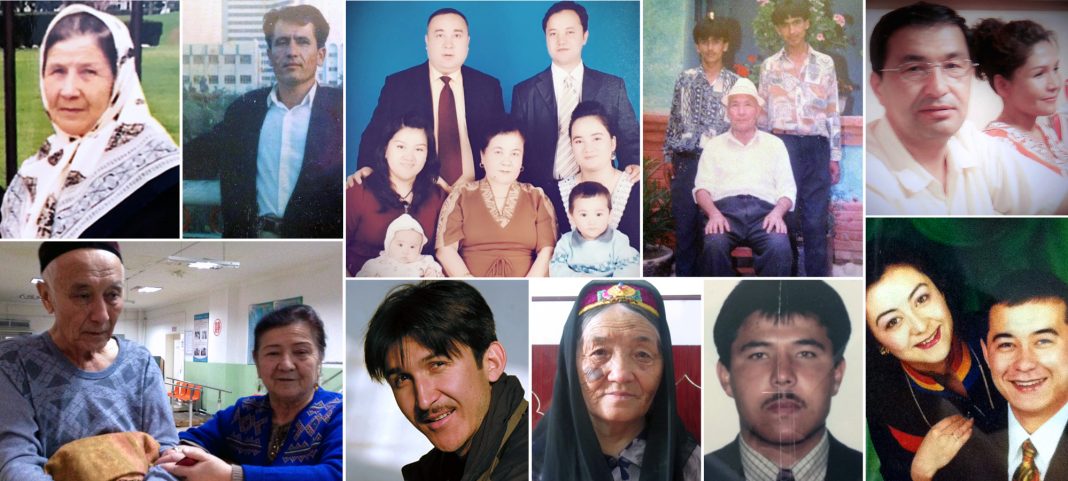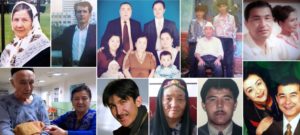Uighur families pay price for relatives’ U.S.-based reporting

Share America, 12 December 2018
They include elderly parents, brothers, sisters, in-laws and other relatives. According to Radio Free Asia, the Chinese authorities are using these family members who live in Xinjiang to coerce and pressure their U.S.-based journalist relatives to stop reporting what is happening in Xinjiang Uighur Autonomous Region.
“When my brother was arrested, my mom asked the police, ‘Why are you arresting my boy?’” says Gulchehra Hoja, former host of a popular children’s television show in Xinjiang who has had up to two dozen relatives detained. According to Hoja, the officer cited her reporting in the United States as the justification for her family’s detention.
Major news organizations often credit Radio Free Asia and its Uighur Service with lifting the veil on what is taking place in China’s western region.
Secretary of State Mike Pompeo has denounced China’s placing Uighurs in mass re-education camps “where they’re forced to endure severe political indoctrination and other awful abuses. Their religious beliefs are decimated.”
A voice for Uighurs
The six Radio Free Asia journalists, all now U.S. citizens or permanent residents, gather news that China’s state-controlled media never report.
Radio Free Asia is a private, nonprofit multimedia news corporation funded by the U.S. government that delivers uncensored news to people in Asia’s closed societies. Despite jamming and internet blocking, it reaches audiences in China, Tibet, North Korea, Vietnam, Cambodia, Laos and Burma in nine languages, including Uighur.

Deputy editor Mamatjan Juma, 45, says three brothers are detained or in prison. He fears three other siblings may be in detention. He has lost contact with his widowed, ailing mother. “The only thing that keeps me moving is that they are not the only persons suffering. Every Uighur is targeted. If we aren’t a voice for them, nobody else would stand up.”
Shohret Hoshur, 53, escaped Xinjiang 20 years ago after coming under scrutiny for his political writings. One of his brothers is jailed, and his 78-year-old mother was recently detained, he says.
“Most people don’t know why they are detained. For my family, it’s very clear,” he says.
Hoja, a 17-year veteran of the Uighur Service, noted that she left behind a successful career, her home, parents, friends and fans. “You have to sacrifice. Freedom does not come freely.” Her elderly parents were released from detention in March.

Kurban Niyaz, 47, came to the United States for graduate school and stayed. He reports that as soon as he started working at Radio Free Asia, Chinese authorities began rounding up his family members in Xinjiang, including his younger brother, who was taken away by state security officials in May 2017.
Jilil Kashgary, 53, with Radio Free Asia since 1999, said his brother, sister-in-law and many cousins have been detained. He takes pride in his work to expose China’s mistreatment of Uighurs in Xinjiang and is cognizant that most of his Uighur relatives are unable to enjoy rights and fundamental freedoms he has in the United States. “We have a chance here to give our people some free expression and [tell] what happens to Uighurs in the region. Uighurs never had this opportunity before.”
Facing pressure
Eset Sulayman, 48, believes one brother and his in-laws have been detained in Xinjiang. His mother died recently.
Sulayman hadn’t told her where he worked, but she learned when three policemen knocked on her door and told her, “Your son in America does journalist work against China.” Unless he quit, they warned, “the result would not be good.”
“It is very big pressure for me, but this is my work. I cannot stop,” he says.
Vice President Pence told an international audience at the State Department’s first Ministerial to Advance Religious Freedom in July that “the United States stands for religious freedom, yesterday, today and always.”
The State Department’s latest Human Rights Reports said China, under the guise of combating terrorism, has imposed “severely repressive security measures and subjected individuals engaged in peaceful expression of political and religious views” to arrest, detention and harassment.
https://share.america.gov/families-pay-price-for-uighur-journalists-reporting/


 By Christopher Connel
By Christopher Connel